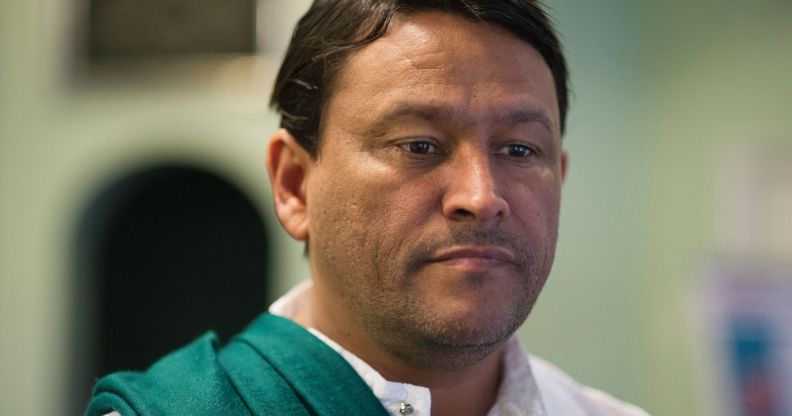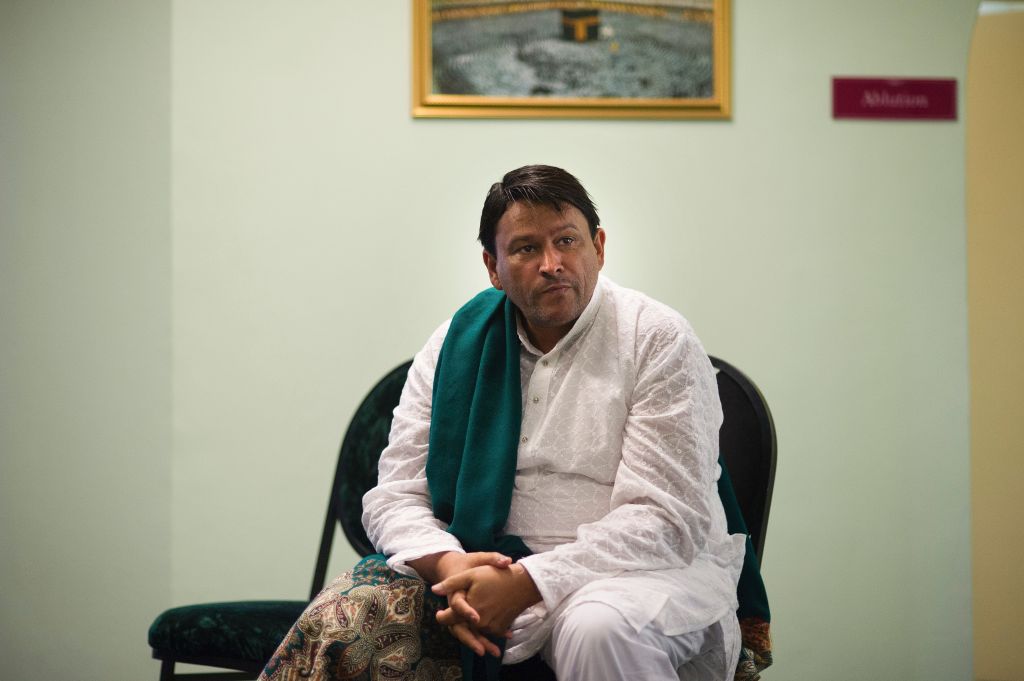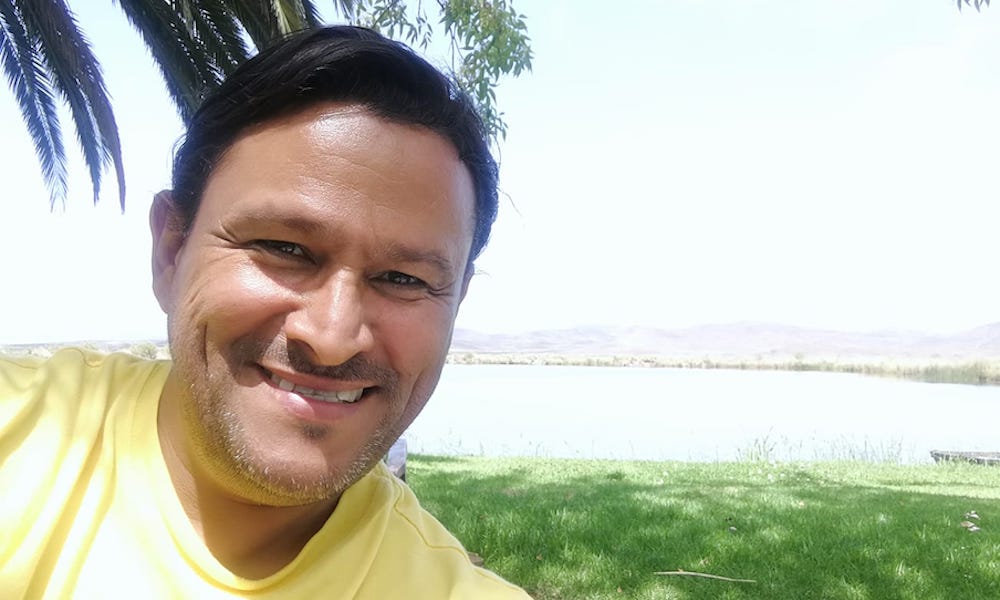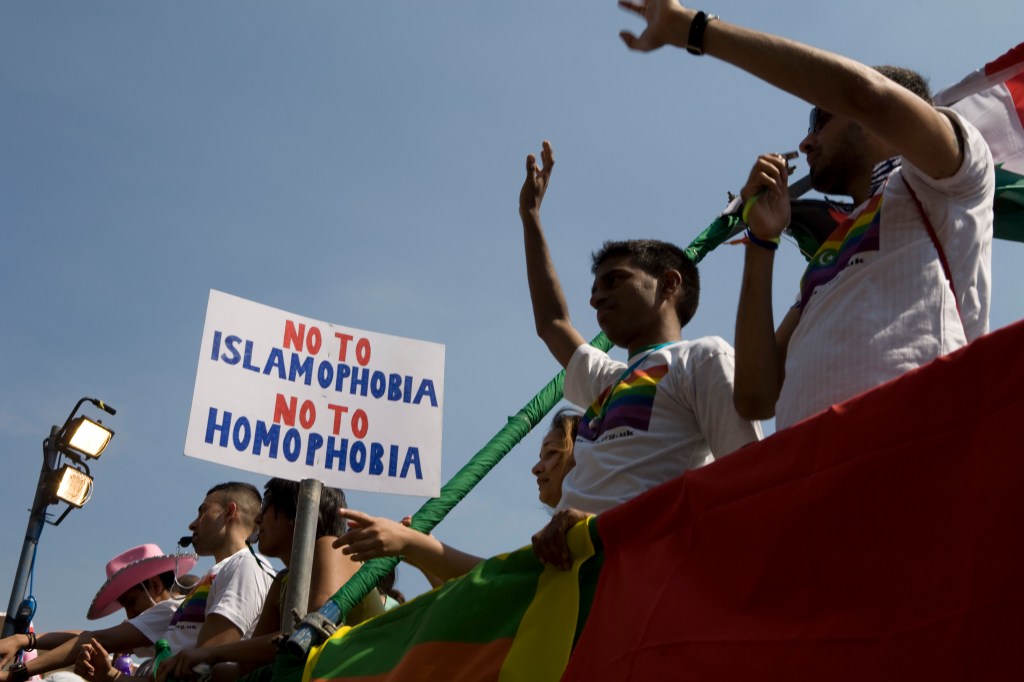LGBTQ+ Muslims fearful after killing of ‘word’s first out gay imam’

Muhsin Hendricks was killed in a shooting in South Africa. (Rodger Bosch/AFP/Getty)
Muhsin Hendricks was killed in a shooting in South Africa. (Rodger Bosch/AFP/Getty)
The killing of the ‘world’s first out gay imam’ Muhsin Hendricks has sent shockwaves across the world, particularly among LGBTQ+ Muslims.
Hendricks was killed in an execution-style hit in broad daylight on Saturday morning (15 February) after the car he was travelling in, near the coastal city of Gqeberha in the country’s Eastern Cape province, was ambushed. He was 57.
A hooded figure was captured on CCTV getting out of a pick-up truck that had blocked Hendricks’ vehicle before firing shots through the window.
There have been no arrests but deputy justice minister Andries Nel has said the authorities are “hot on the heels” of the suspects. While the exact motive for the killing remains unclear, the incident has left LGBTQ+ Muslims fearful.
Speaking to PinkNews about the killing of the South African imam, UK-based queer Muslim Al asked if someone like Hendricks, who was known around the world, can be killed out in the open, then “what about the rest of us?”
Al went on to say: “People have framed this as an issue that occurs in other spaces, not in the UK, [but] too often queer Muslims in the UK are suffering death threats, abuse, physical violence [and] torture at the hands of family and the greater community.
“Young queer Muslims grow up with this fear – and even as we grow into old age we still live with this fear – that one day something like this could happen to us. When it’s happened to the first openly queer Imam, it has been a realisation that it can happen to any of us.”

A trailblazer in religiously conservative circles, Hendricks was dubbed the world’s first openly gay imam, after he came out in the 90s.
He went on to create The Inner Circle, later known as Al-Fitrah Foundation, which worked to support LGBTQ+ Muslims reconciling their faith and identities and sought to educate other imams, helping them develop an inclusive understanding of gender and sexuality in Islam.
“A lot of unlearning needs to be done [but] it is amazing what the imams come up with,” he said in 2020. “They bring research and context and match it with the religious text, and there are these ‘aha!’ moments.”
Al, a member of the team at Imaan, the UK’s leading LGBTQ+ Muslim charity, said Hendricks was a personal friend and his death had come as a “deep shock” to the community, leaving some feeling the “need to go back in the closet”.
He added: “[Members of the community] feel they need to conform. The trauma that comes with that is so problematic because the work of people like Muhsin Hendricks, in particular, [allowed] people to live [as] their authentic selves.
“Nobody should be left outside their family, community or faith group, and divinity should not be exclusive to one group. Everybody should have access to that, all across the UK and globally.”
“We feel silenced, our words are not doing justice to our feelings.”
In the wake of Hendricks’ death, Imaan is directly supporting the LGBTQ+ community by continuing its many services therapy sessions, in-person and online meet-ups and support groups.

Two leading Muslim organisations in South Africa, the Muslim Judicial Council (MJC) and the United Ulama Council of South Africa (UUCSA), condemned the killing but continue to denounce his teachings on gender and sexuality in Islam, reflecting the view held by many that the Quran prohibits same-sex relationships.
It was initially reported that Hendricks was shot after performing a lesbian wedding ceremony, but his Al-Ghurbaah Foundation released a statement revealing that he was in Gqeberha to officiate two interfaith heterosexual marriages.
As the BBC’s Johannesburg-based reporter Khanyisile Ngcobo noted, traditional imams in South Africa rarely perform marriages between a Muslim and non-Muslim couple. It is another way Hendricks was at odds with more conservative religious leaders.
Al said the responses of the MJC and UUCSA were the “most hopeful” they have seen among a wave of hatred from within, and outside, the Muslim community. He noted that there had been no similar messages from Islamic organisations in the UK.
“I’d love to see the most major mosques and institutions here talking about this and really taking ownership of how queer Muslims are rejected and not accepted in those spaces, and what they’re going to do to make sure they stop alienating us,” Al said.
“[The] less educated [are] still mocking the cause and mocking his death. This is painful to us.”

Last year, Imaan ran the UK’s first Muslim Pride, a full-day celebration of queer Muslim culture, activism and history. Originally scheduled for 2020, it had to be cancelled because of the COVID-19 pandemic.
At the time, non-binary practising Muslim Ferhan Khan said the event challenged the idea that Islam was “inherently queer-phobic”, adding: “This is an assumption that’s not necessarily based on fact because if you read the parts of the Quran that supposedly condemn homosexuality, it’s not clear cut.
“For a lot of queer Muslims, this is a difficult one because they might want to retain their faith. They might want to simply be in a space where they are validated for being both queer and Muslim, and that’s what Imaan is doing: serving up a space where you can be… validated for that choice.”
Share your thoughts! Let us know in the comments below, and remember to keep the conversation respectful.

